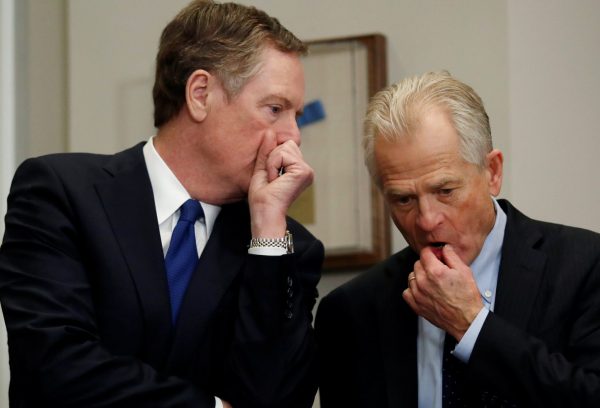Will Trump be the nail in their coffin, and if so, what will this change achieve for the United States?
Despite the efforts of the World Trade Organization (WTO), the post-war era has seen world leaders indulge in a raft of protectionist schemes, ranging from support for nascent industries to strategic trade policies designed to improve export prices. Examples include voluntary export restraints, anti-dumping regulations and countervailing duties that place uncertainty on exporters and, in practice, provide ad hoc protection for favoured sectors. The protectionist landscape also includes subsidies to agriculture that force down world prices — a practice that makes progress difficult for developing countries. The system is also plagued by technical regulations that are so detailed that they require armies of lawyers to negotiate.
When we add to this list the collapse of the WTO multilateral negotiations through Doha and the rise of regional trade agreements with complex rules of origin that result in growing complexity, it is clear that the world trading system had a number of problems even before Trump.
This was not how it was supposed to be. The WTO was designed to provide business with stability and a buffer against rival lobby groups and political populism, and to restrain nations from using trade policy as a diplomatic weapon. By the 1990s, after the WTO’s initial success, it was predicted that globalisation would see off economic nationalism.
But as political sentiments have shifted towards nationalism, the WTO and the liberal economic order have been increasingly under challenge. Now Trump is using economic policy as a lever for international relations in ways that the WTO was designed to prevent.
This does not mean Trump is right to rewrite the rules. Even if the political mood has become more nationalistic, and even if there are political reasons to discriminate in trade relations, the basic premise under which Trump is operating is built on fallacy.
Trump’s language makes the fallacy clear. He believes that imports are bad, that exports are good and that import taxes are an effective way to punish foreign partners. Thus, according to Trump, if the United States exports more than it imports, it is ‘winning’.
If one accepts Trump’s logic, then the next step is to impose import barriers on political rivals and to use threats of import restrictions to help other countries (especially security alliance partners) see things your way politically.
The problem is that import taxes hurt domestic consumers and businesses because whether they purchase imports or local substitutes, they have to pay the higher price. For example, Australia is the world’s biggest exporter of iron ore but consumes very little. The ore is primarily mined for its value through export earnings. But producing more iron ore only makes Australians better off if they can use the export revenue to purchase imports. If Australia taxes its imports, then it has to dig up more iron ore to cover the higher cost of those imports. By taxing imports, Australia imposes costs on itself. In the case of the United States it is no different. Trump’s import taxes make US consumers and businesses, who rely on imports, worse off.
Ironically the winner from import taxes is government, which gets to keep the tax revenues at the expense of consumers and business. So new import taxes won’t be exactly ‘draining the swamp’ since Washington will collect the tax revenues.
Trump’s focus on the trade surplus is equally wrong-headed. The United States’ growing deficit is not a symptom of weakness but is, instead, a symptom of strong US demand and emerging economic growth — consumers are buying lots of imports. It also reflects the strong US dollar — the United States is in the enviable position where it does not have to dig up coal or produce cars to pay for its imports, since it can just print dollars, which other countries, and particularly China, want to facilitate international transactions and to hold as reserves for a rainy day. The purchase of goods in exchange for US dollars creates a ‘trade deficit’ for the United States, because everyone wants to hold US dollars not spend them. When an economy is in trouble it’s the other way around — any takers for Belarsuian rubles or the Venezuelan bolivar?
Trump’s approach has other problems. Mere talk of trade wars risks undermining confidence in the US economy — an economy that is only now recovering from the global financial crisis. The more Trump whips up a frenzy, the more he risks inducing market jitters and a stock market collapse that would have real effects on the economy by reducing the value of holdings of wealth, including the dividends on pension funds.
Likewise, the bigger the frenzy, the more likely Trump is to generate a bigger trade deficit as consumers and business buy up now in advance of the expected trade war. If firms and consumers believe that Trump will introduce import tax hikes in the near future, they will respond by spending more on imports now.
But perhaps most critically, Trump’s ‘rewrite-the-rules approach’ is further eroding the institutions that were designed to facilitate growth and prevent trade wars. He is opening the door for overt nationalist protectionism as an acceptable way to conduct international relations. This damages the credibility of the United States, and it may take many future generations of presidents to undo this and rebuild trust. It also gives licence to others to act in the same way. Meanwhile China has seized the moment, using the opportunity to pose as the protector of the international order. Trump’s approach is a fatal own-goal in his supposed plan to restore the US economy and US global leadership. The system was already under assault, and Trump’s attack on it may be fatal.
Peter Robertson is a Professor of Economics and Dean of the University of Western Australia (UWA) Business School.
This article appeared in the most recent edition of East Asia Forum Quarterly, ‘Trade wars and Asia’.

